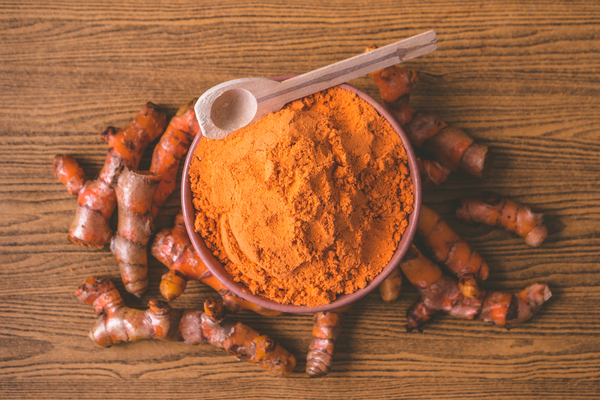Ginger

What is ginger?
Ginger is a plant from the ginger family. The root tuber is used as a spice or medicine. It has a pungent taste and a spicy smell. Ginger contains many valuable ingredients, such as gingerol, which is responsible for the spiciness.
What are the benefits of ginger for dogs?
Ginger can help your dog with various ailments:
- For nausea and vomiting: Ginger soothes the stomach and aids digestion.
- For flatulence: Ginger has an antispasmodic and decongestant effect.
- Forosteoarthritis and joint pain: Ginger relieves pain and inhibits inflammation.
- For cancer: Ginger can inhibit the growth of tumor cells and strengthen the immune system.
- For parasites: Ginger can be effective against heartworms and other parasites.
What are the disadvantages of ginger for dogs?
Ginger is not harmful to dogs, but it should not be given too often or too much. Too much ginger can lead to the following problems:
- Stomach irritation: the spiciness of ginger can irritate your dog's stomach.
- Blood thinning: Ginger can affect blood clotting. This can be problematic if your dog is taking medication or has to undergo surgery.
- Allergy: Some dogs can have an allergic reaction to ginger. Watch out for symptoms such as itching, skin rash or breathing difficulties.
How do I dose ginger for my dog?
The correct dosage of ginger depends on the size, weight and health of your dog. It is best to ask your vet for advice before giving your dog ginger.
As a rule of thumb, give your dog no more than 0.5 grams of fresh or dried ginger per kilogram of body weight per day. You can give the ginger pure or mix it into the food.
You can also buy ready-made products with ginger tea or extract, but pay attention to the ingredients and the dosage instructions.
Ginger is a healthy ingredient for your dog and can help him with many ailments. But don't overdo it with the amount and frequency.
Properties 3
Are you looking for other ingredients with a specific property?
Just click on them to find more.
If you notice any signs of hypersensitivity or poisoning in your dog, you should see your vet immediately. We are not a substitute for a vet, but we try to be as accurate as possible. Every dog reacts differently and we recommend you get a second opinion or consult your vet if in doubt.
Stay healthy and take good care of your four-legged friend!😊
Similar to Ginger
Turmeric belongs to the ginger family and grows in South Asia. The root is dried and ground to obtain the familiar yellow powder. Turmeric contains an active ingredient called curcumin, which is...
Turmeric root is the root of the Curcuma longa plant, which belongs to the ginger family. The root has a yellow color and a spicy taste. It contains the active ingredient curcumin, which is known...
Cardamom belongs to the ginger family and originally comes from South Asia. The plant has long, narrow leaves and small, yellow-green flowers. Elongated capsules containing the seeds develop from...
Nutmeg is the seed of the nutmeg tree, which grows in tropical regions such as Indonesia and India. The seeds are dried and ground or grated into a spice. Nutmeg contains various ingredients that...



